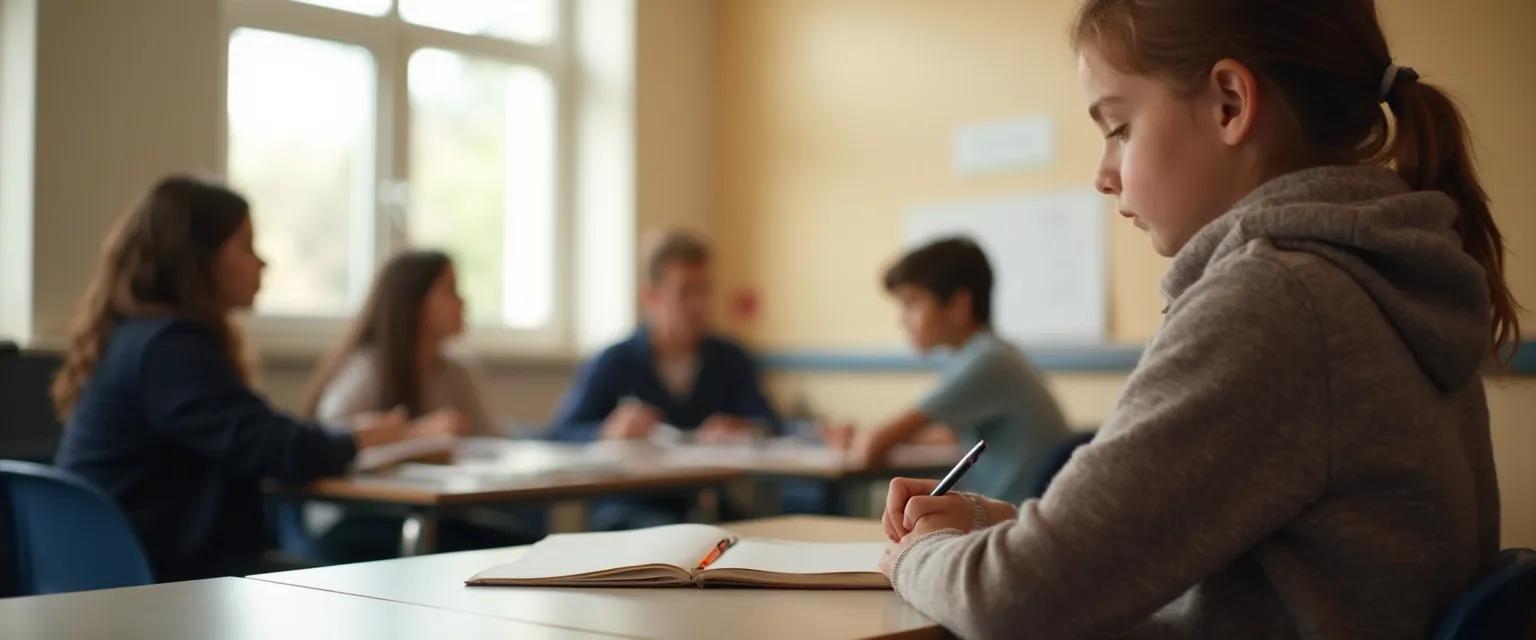7 Ways to Build Confidence in Educational Environments for Introverted Students
The classroom can feel like a battleground for introverted students. While extroverts thrive in spotlight moments, those who prefer quieter reflection often struggle with traditional participation expectations. Building confidence in educational environments looks different for introverts, who may freeze at the thought of raising their hand or giving presentations. Yet these students possess valuable insights and deep thinking that enriches the learning community—when given appropriate channels to express themselves.
Research consistently shows that introverts often possess exceptional analytical skills and attention to detail, qualities that are immensely valuable in educational settings. The challenge isn't about creating confidence in educational environments from scratch—it's about finding expression methods that honor introverted strengths rather than forcing extroverted behaviors. When educators recognize and validate these alternative participation pathways, introverted students thrive academically and emotionally.
For parents and educators seeking to support introverted learners, understanding that confidence in educational environments manifests differently is the first step. These students need approaches that leverage their natural tendencies toward thoughtful reflection and deep emotional intelligence rather than working against them.
Written Expression: Building Confidence in Educational Environments Quietly
One of the most effective confidence in educational environments strategies for introverted students involves written expression. When verbal participation feels overwhelming, written contributions offer a powerful alternative that showcases depth of thought and engagement.
Digital platforms have revolutionized participation options. Tools like shared online documents, classroom message boards, and real-time polling apps create spaces where introverted students can contribute thoughtfully without the pressure of public speaking. These technologies transform the confidence in educational environments landscape by validating text-based participation as equally valuable.
Pre-class preparation serves as another cornerstone of confidence in educational environments for introverted learners. When students review materials beforehand, formulate responses, and outline potential contributions, they enter classroom discussions with greater security. This preparation transforms uncertainty into structured confidence that enhances learning outcomes.
Written work often reveals aspects of understanding that verbal discussions miss. Many introverted students excel at comprehensive written analysis that demonstrates deep focus and concentration—qualities that strengthen their confidence in educational environments when properly recognized and valued.
Small Group Dynamics: Strengthening Confidence in Educational Environments
While large-group discussions can overwhelm introverted students, small collaborative settings often become their confidence in educational environments incubators. Pair work and groups of 3-4 students create psychologically safer spaces where quieter voices find expression.
Structured activities with clear roles particularly benefit introverted students' confidence in educational environments. When assigned specific responsibilities—like research coordinator, note-taker, or summarizer—these students contribute meaningfully without navigating ambiguous social dynamics. These defined roles validate their participation while building confidence gradually.
Small group discussions serve as stepping stones toward broader confidence in educational environments. Through repeated positive experiences in intimate settings, introverted students develop communication skills and comfort that eventually translate to larger group settings.
The key to effective confidence in educational environments development lies in progression. Beginning with written responses, moving to partner work, then small groups, and eventually larger settings creates a sustainable growth trajectory that honors introverted learning patterns while building essential skills.
Practical Tools for Lasting Confidence in Educational Environments
Technology offers transformative options for introverted students' confidence in educational environments. Response systems allowing anonymous contributions, digital presentation alternatives, and collaborative online projects all create participation pathways that showcase knowledge without triggering social anxiety.
Preparation remains the cornerstone of introverted confidence in educational environments. Teaching students to develop talking points, practice responses privately, and visualize successful participation builds sustainable confidence that withstands challenging classroom situations.
Effective communication with educators about learning preferences represents another vital confidence in educational environments strategy. When students can articulate their strengths and challenges, teachers can create accommodations that honor diverse participation styles while building speaking confidence gradually.
The most effective confidence in educational environments approaches recognize that introversion isn't a weakness to overcome but a different cognitive style with unique strengths. By implementing these alternative participation strategies, introverted students develop authentic confidence that honors their natural thinking patterns while preparing them for academic and professional success.




